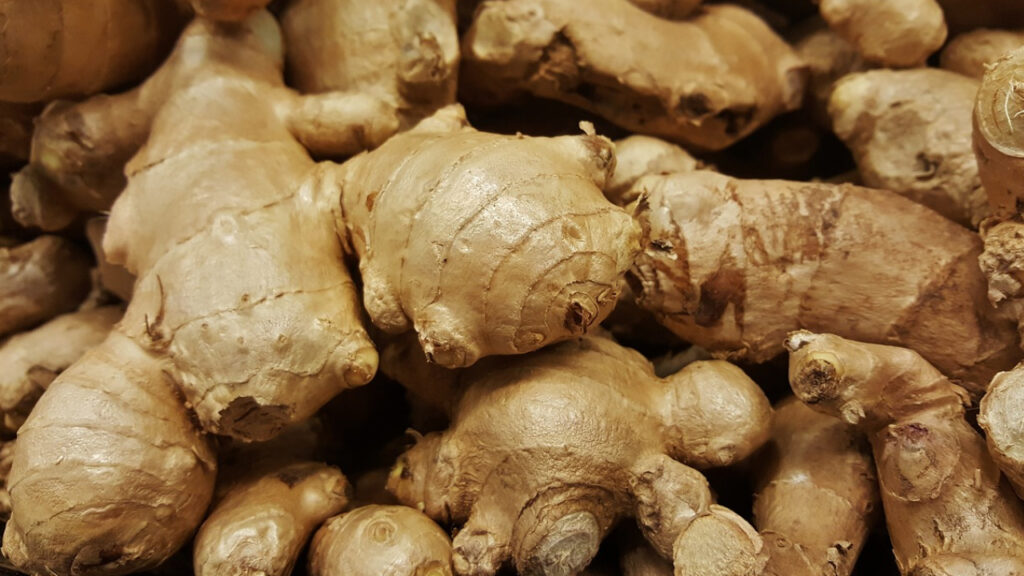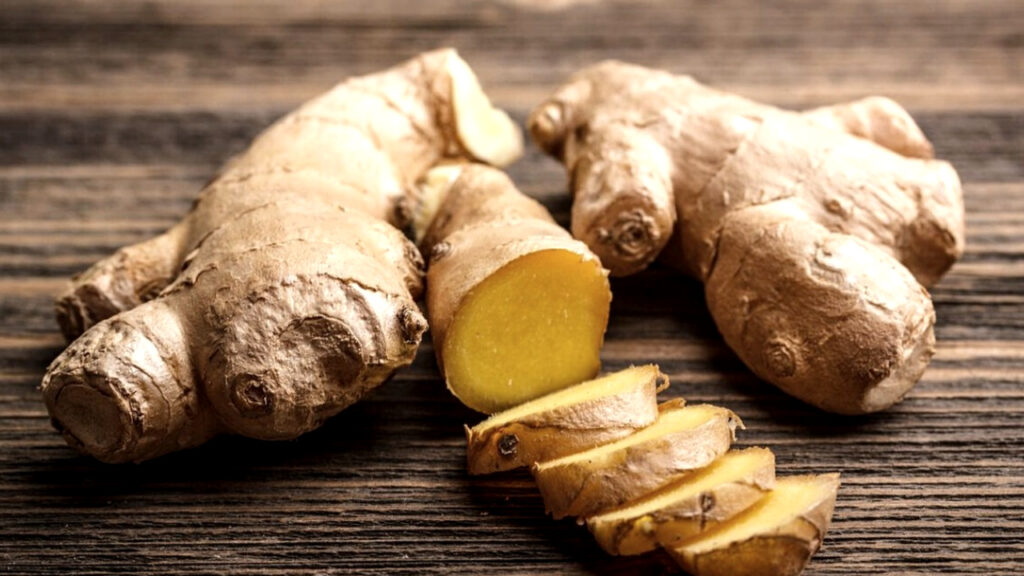
Ginger is a flowering plant whose rhizome, often referred to as ginger root, is widely used as a spice and for its medicinal properties. It has a pungent and slightly sweet taste and is commonly used in culinary applications, as well as in various traditional medicines.
But can rats eat them too?
Yes, rats can eat ginger in moderation. Ginger is generally considered safe for rats, and many rats may nibble on small pieces without any harm. It’s important to offer ginger in small amounts, as rats have specific dietary requirements, and their main nutrition should come from a balanced rat food. Treats, including ginger, should only be a small part of their diet.
So, should you allow ginger to your rats?
Let’s find out!
Table of Contents
Can Rats Eat Ginger?
So, when it comes to rats and ginger, it’s a bit like asking if you should share your snacks with your pet rat. Ginger itself isn’t toxic to rats, which means it won’t make them sick or anything, but it’s not exactly the yummiest treat for them either.
Rats are pretty picky eaters, and they might not find ginger as tasty as some other foods. Plus, it has a strong flavor that they might not be too crazy about.
The most important thing is to make sure that the main part of their diet is a balanced rat food. Giving them too many snacks, even if it’s something safe like ginger, isn’t the best idea. It’s like eating too much candy – not great for our health in the long run!
So, while your pet rat technically can nibble on a tiny piece of ginger without any harm, it’s probably better to stick to treats that they enjoy more and that are healthier for them.
Also Read: Can Rats Eat Pineapple?
How Much Ginger Can Rats Have?
When it comes to giving ginger to rats, the key is moderation.
Rats are tiny creatures, and their tummies are not as big as ours. While ginger itself isn’t harmful to them, it’s best to offer it in small amounts.

A small piece of ginger, like a thumbnail-sized chunk, should be enough. It’s always a good idea to introduce new foods slowly.
Watch how your rat reacts to it. If they seem to enjoy it and it doesn’t upset their stomach, you can continue to offer it occasionally.
Remember, though, that rats have specific dietary needs, and their main diet should consist of a nutritionally balanced rat food.
Treats like ginger should only be given as an occasional snack and not as a significant part of their diet.
Is Ginger Good for Rats?
While ginger is generally safe for rats, it’s important to note that it doesn’t offer significant health benefits for them.
Rats have specific nutritional requirements, and their main source of nutrition should come from a balanced rat food designed to meet their needs.
Ginger, while safe in moderation, doesn’t provide essential nutrients in amounts that significantly contribute to a rat’s overall health.
However, a typical serving of ginger (1 tablespoon) contains:
- Calories: Around 4 calories
- Carbohydrates: About 1 gram
- Fiber: Around 0.1 gram
- Protein: Approximately 0.1 gram
- Fat: Almost negligible
While ginger does contain some antioxidants and bioactive compounds that have potential health benefits for humans, rats have different dietary requirements.
Therefore, the nutritional value of ginger isn’t as relevant for them as it might be for humans.
For optimal rat health, it’s recommended to focus on providing a balanced rat food that meets their nutritional needs.
Treats, including small amounts of ginger, can be given occasionally for variety and enrichment, but they should not replace the mainstay of a rat’s diet.
Risks & Consideration of Feeding Ginger to Rats
While ginger is generally safe for rats in small amounts, there are still some risks and considerations to keep in mind:
Moderation is Key
Even though ginger is safe for rats, it’s crucial to offer it in moderation.
Rats have specific dietary requirements, and their primary nutrition should come from a balanced rat food. Treats, including ginger, should only complement their diet and not replace their main food.
Strong Flavor
Ginger has a strong and distinctive flavor that not all rats may enjoy. Some rats can be quite picky, so it’s possible that they may not be interested in eating ginger.
Always pay attention to your rat’s preferences.
Digestive Sensitivity
Like any new food, ginger might not agree with every rat. Introduce it slowly and observe how your rat reacts.
If you notice any signs of digestive upset, such as diarrhea or changes in behavior, it’s wise to stop giving them ginger and consult with a vet.
Freshness and Cleanliness
Always offer fresh and clean ginger. Wash it thoroughly to remove any pesticides or dirt that might be present on the skin.
Providing clean and safe food reduces the risk of potential health issues.
Remember, the health and well-being of your pet rat should always be a top priority. While ginger can be a safe and interesting treat for them, it’s essential to incorporate it into their diet with care and consideration for their individual preferences and health status.
Can Rats Rat Raw Ginger?

Yes, rats can eat raw ginger in small amounts.
Ginger is generally safe for rats, and many rats may nibble on small pieces without experiencing any adverse effects. However, offer ginger in moderation.
Rats have specific dietary requirements, and their main nutrition should come from a balanced rat food. Treats, including ginger, should only be a small part of their diet.
Introduce ginger gradually to observe how your rats react. Some rats may have more sensitive stomachs than others.
If you notice any signs of digestive upset, such as diarrhea, it’s advisable to stop giving them ginger.
Can Baby Rats Eat Ginger?
When it comes to baby rats, extra caution is needed when introducing new foods like ginger. Baby rats have developing digestive systems, and their nutritional needs are different from those of adult rats.
While ginger itself is not toxic, there are considerations to keep in mind:
Digestive Sensitivity
Baby rats may have more sensitive stomachs than adults. Introduce new foods very gradually and in small amounts. Watch for any signs of digestive upset, such as diarrhea or changes in behavior.
Nutritional Needs
The primary nutrition for baby rats should come from their mother’s milk or a specially formulated rat milk substitute.
As they start to eat solid foods, it’s essential to provide a high-quality, nutritionally balanced rat food designed for young rats.
Ginger doesn’t offer the necessary nutrients for their growth and development.
Preference
Just like adult rats, baby rats may not be interested in the strong flavor of ginger. It’s important to pay attention to their preferences and not force new foods on them.
In summary, while ginger is not inherently harmful, it’s crucial to exercise caution when offering it to baby rats.
Alternatives to Ginger for Rats
Rats can enjoy a variety of healthy and safe treats.
Here are some alternatives to ginger that you can consider for your pet rats:
- Fresh Fruits: Offer small pieces of fruits like apples, bananas, berries, and melons. Ensure that the fruits are cut into appropriately sized portions for your rats.
- Vegetables: Rats can benefit from vegetables such as carrots, broccoli, peas, and leafy greens like kale or spinach. These provide essential vitamins and minerals.
- Grains and Seeds: Rats enjoy grains and seeds like cooked rice, oats, and quinoa. These can be offered in small amounts as a tasty and nutritious treat.
- Nuts: Give your rats small portions of nuts like almonds, walnuts, or hazelnuts. Nuts are high in fat, so moderation is key.
- Yogurt Drops: Yogurt drops made specifically for small animals can be a tasty and safe treat for rats. These can be a good source of calcium.
- Cheese: Rats generally love cheese. Offer small amounts of low-fat options like cheddar or mozzarella as an occasional treat.
- Whole Grains: Whole grains like whole wheat pasta, barley, or couscous can be introduced in small quantities for variety.
Remember to introduce new foods gradually, observe your rats’ reactions, and ensure that treats complement their overall diet rather than replacing it.
Each rat may have individual preferences, so feel free to explore and find what your furry friends enjoy the most!
Final Thoughts
To sum up, rats can indeed eat ginger in moderation without significant harm. While ginger itself is not toxic to rats, it’s important to consider a few factors.
Rats may not find the strong flavor of ginger appealing, and it should be introduced slowly to gauge their interest and any potential digestive sensitivities.
However, it’s crucial to keep in mind that ginger doesn’t offer the essential nutrients that rats need in their diet. The majority of their nutrition should come from a balanced rat food. Treats, including ginger, should only be given occasionally and in small amounts.
If you’re ever unsure about introducing new foods, including ginger, into your rats’ diet, consulting with a veterinarian is a wise decision.
Before you leave, here are more helpful articles:
